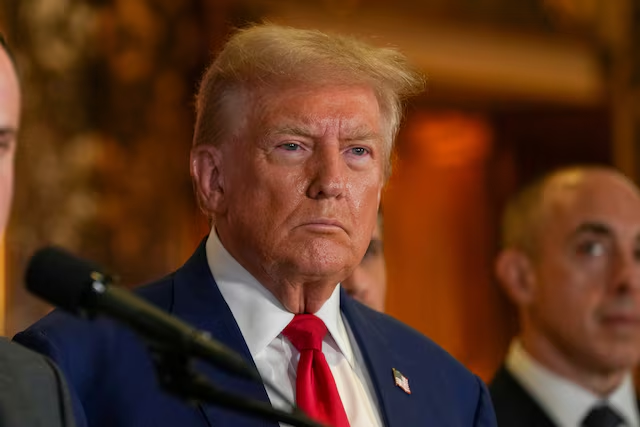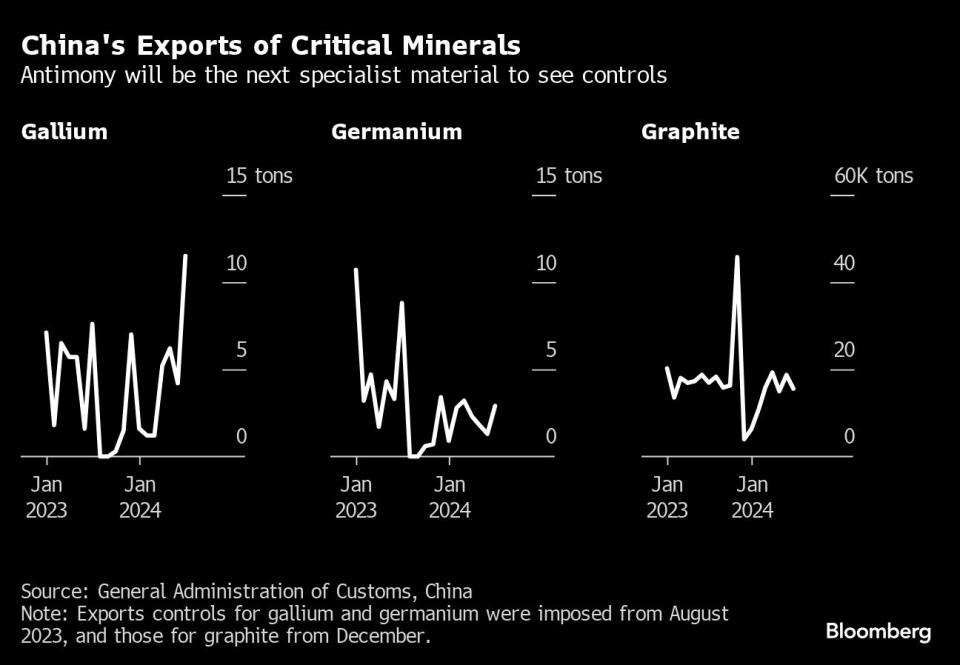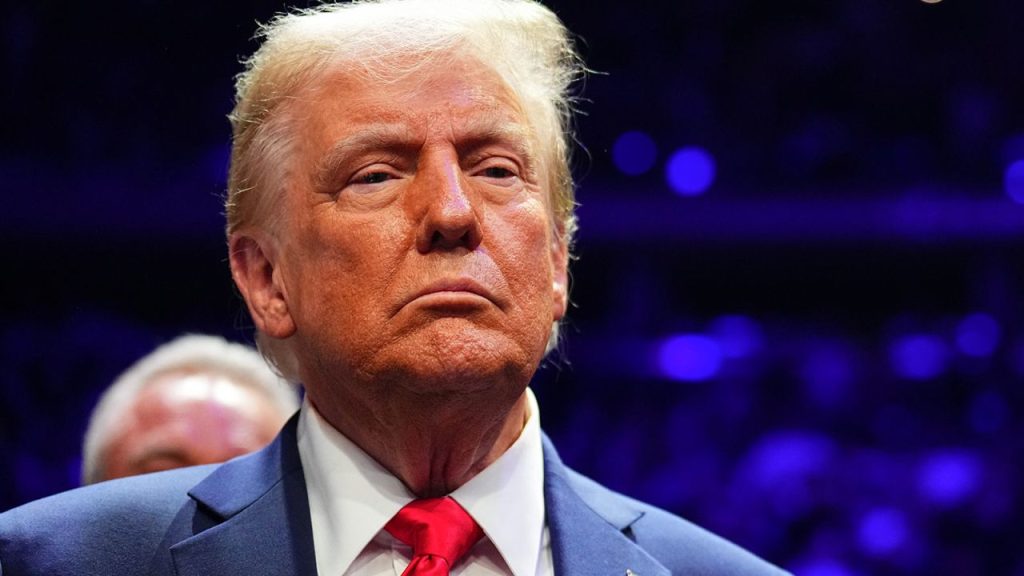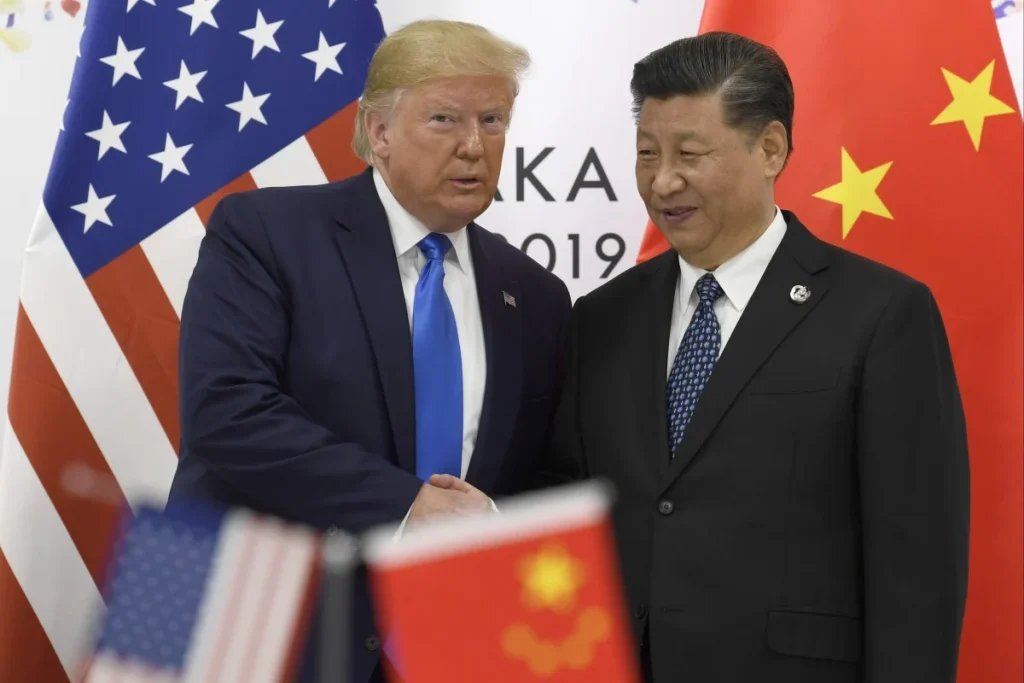China State Media Warn Trump Against Mutually Destructive Tariff War

Amid escalating tensions between the United States and China, Chinese state media have issued a stern warning to former President Donald Trump, advising against a return to trade war tactics that could have mutually destructive consequences for both nations.
Trump’s proposal to reintroduce tariffs on Chinese goods has rekindled fears of a renewed trade conflict between the world’s two largest economies.
While Trump insists that tariffs are essential for protecting U.S. jobs and reducing the trade deficit, Chinese state-controlled outlets have emphasized that such actions could harm both economies, with far-reaching consequences for global trade.
The Stakes of a Trade War: The Repercussions of Tariffs
The potential reimplementation of tariffs on Chinese imports under Trump’s leadership is a matter of serious concern for China, as the country has been a key target of U.S. tariffs in the past.
During Trump’s presidency, the U.S. imposed tariffs on hundreds of billions of dollars worth of Chinese goods as part of his “America First” trade policy.
This trade war led to retaliatory tariffs from China, which targeted American agricultural exports, tech products, and other key industries.
In response to Trump’s renewed call for tariffs, China’s state-run media, including outlets such as the Global Times and China Daily, have warned that such actions would be economically damaging to both sides.
The Global Times editorial emphasized that a tariff war would not only harm U.S. businesses but could also disrupt the global supply chain, which has become increasingly interconnected over the years.
The Chinese government, which had already retaliated in previous trade disputes, made it clear that it would respond similarly if tariffs were reinstated, continuing the cycle of economic warfare.
The warning from Chinese state media comes as a reminder of the dire consequences of a trade war. The imposition of tariffs on Chinese products could increase costs for U.S. consumers, especially in industries reliant on Chinese manufacturing, such as electronics, consumer goods, and clothing.
A rise in tariffs would likely be passed onto American consumers in the form of higher prices, thereby impacting everyday people who already face inflationary pressures. This could significantly affect consumer spending, which accounts for a large portion of the U.S. economy.
Mutual Destruction: The Long-Term Economic Impact
Both China and the U.S. rely heavily on each other for trade. The U.S. imports a vast array of goods from China, from electronics to clothing, while China is a significant market for American agricultural products, machinery, and technology.
The Global Times argues that a trade war based on tariffs would likely lead to “mutual destruction” rather than yielding any meaningful benefits for either side.
The effects of a tariff war extend beyond just consumer prices and imports. U.S. businesses that rely on Chinese supply chains, such as tech companies, car manufacturers, and retailers, could find their operations disrupted as tariffs increase production costs.
The U.S. tech industry, in particular, has deep ties to Chinese manufacturing, with companies like Apple, Intel, and Qualcomm dependent on Chinese factories for assembly.
Any tariff increases would put pressure on these companies’ bottom lines, potentially leading to higher prices for consumers and reduced profitability for businesses.
For China, a trade war could negatively impact its manufacturing sector, which is integral to the country’s economy. China is the world’s largest manufacturer and exporter, and a disruption to U.S.-China trade flows would hit Chinese companies hard.
In particular, industries that depend on high-tech components from the U.S., such as electronics and aerospace, could see significant losses.
Additionally, Chinese exporters could lose access to critical markets if tariffs reduce demand for their products in the U.S. or other parts of the world.
Moreover, both countries could face broader economic challenges, including slower economic growth, rising unemployment, and reduced foreign investment.
With the U.S. and China deeply embedded in the global economic system, a tariff war between the two countries would not only harm their respective economies but could also destabilize the global economy, affecting trade relations with other countries and international financial markets.
China’s Push for Diplomacy and Global Cooperation
Chinese state media have also underscored that diplomacy, rather than confrontation, is the best path forward for resolving trade disputes between the U.S. and China.
In editorials, they have called for dialogue and collaboration on trade issues, urging the U.S. to consider the long-term consequences of tariff policies.
They have also emphasized that the U.S. should avoid actions that exacerbate tensions and instead seek mutually beneficial agreements that help both nations.
In a broader context, China has expressed its commitment to global economic cooperation and free trade, advocating for multilateral trade agreements and a rules-based international trading system.
The Chinese government has long emphasized the importance of global supply chains and open markets, highlighting that protectionist policies, like tariffs, would ultimately harm all countries involved.
China’s leadership has pointed out that while it remains open to resolving trade disputes through negotiation, it will not allow the U.S. to dictate terms or impose unfair trade restrictions.
Beijing has consistently argued that a fair and equitable trade relationship requires respect for both countries’ interests and recognition of the mutual benefits of global trade.
Trump’s Position: A Return to “America First”
For Trump and his supporters, the call for tariffs is rooted in a longstanding belief that the U.S. has been treated unfairly in trade deals with China and other countries.
Trump argues that the U.S. has been taken advantage of in international trade, leading to significant trade imbalances and a loss of manufacturing jobs.
He sees tariffs as a tool to bring jobs back to the U.S., particularly in industries that have moved abroad in search of cheaper labor and fewer regulations.
Trump’s stance on tariffs remains consistent with his broader “America First” approach, which prioritizes U.S. economic interests over global cooperation.
He has argued that by imposing tariffs on China, the U.S. can create a level playing field and force China to reduce its trade surplus with the U.S. and address what he calls unfair practices such as intellectual property theft, forced technology transfers, and currency manipulation.
However, while Trump’s approach has a base of support among his political allies and some segments of the American public, his critics argue that tariffs could exacerbate the very problems they aim to solve.
Many economists have warned that a trade war could lead to higher consumer prices, job losses, and a slowdown in economic growth.
Furthermore, the global supply chains that have emerged over the past few decades make it difficult to fully decouple from China without severe economic disruption.
As Trump’s tariff plan gains traction among his supporters, the growing resistance from China underscores the importance of finding a balanced approach to trade policy.
A tariff war between the U.S. and China could lead to significant economic fallout, both domestically and internationally.
With both nations closely intertwined in global trade, the stakes of such a conflict are high, and a mutually destructive outcome would benefit neither side.
For the U.S., the path forward will require a careful reconsideration of how to address trade imbalances and unfair trade practices without resorting to the heavy-handed tactics of the past.
Likewise, China will need to be open to reforms that address concerns over intellectual property and trade practices while maintaining its position in the global economic landscape.
Ultimately, the key to resolving trade tensions between the U.S. and China lies in dialogue and diplomacy, rather than escalating tariffs that harm both nations.
In the coming months, both countries will need to balance their respective economic interests with the broader need for global stability and cooperation.






